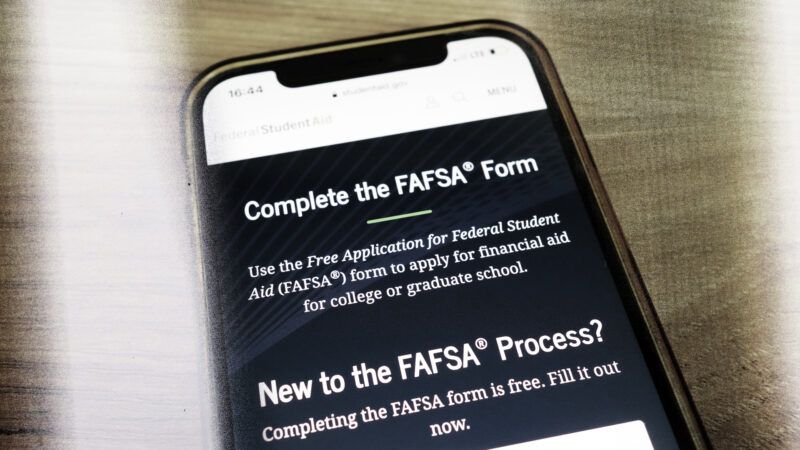Wait, This Year's FAFSA Actually Works?
After a year of glitchy chaos, the Department of Education may have finally gotten its act together.

The 2025–2026 Free Application for Federal Student Aid (FAFSA) is now available. And unlike last year's form—which had a disastrous launch—this one seems to be working.
The form was officially released on November 21, although a statement from the Department of Education says that thousands of students had already completed applications during periods of beta testing.
"The 2025–26 FAFSA form that we officially released today is the same form that has been live for the past 7 weeks for the more than 140,000 students who successfully submitted applications," FAFSA Executive Advisor Jeremy Singer said in a press release last month. "Our comprehensive beta testing with community-based organizations, high schools and school districts, colleges and universities, software vendors, and state agencies across the country follows industry best practices and has given us the confidence that our systems are ready."
Last year, the Education Department released an updated, streamlined version of the FAFSA. The application is required for students who want federal loans and grants, and most colleges also use the form to determine how much institutional financial aid to give students. Each year, millions of college students and their families fill out the FAFSA.
While creating a simpler version of the form seems like a good idea, the Education Department's form—released almost three months late, on December 30 of last year—was riddled with technical bugs that made it almost impossible for many students to complete. The issues lasted months, making last year's FAFSA a government website–related disaster on par with the launch of HealthCare.gov in 2013.
Last year's form had dozens of persistent issues that took months to resolve. The Education Department even announced in March that it had miscalculated aid estimates for around 200,000 students who reported their own assets on the FAFSA.
By the form's deadline in June, total FAFSA completions were down 11 percent compared to the year prior—a gap larger than the one caused by the coronavirus pandemic. College administrators reported frustration, unable to give students reliable estimates of how much financial aid they could receive without FAFSA numbers.
This year's form was released much sooner than last year's and seems to be functioning properly.
"I got through my part of the form in under 20 minutes," New York Times reporter Rob Lieber wrote last month. "Importing tax information from the Internal Revenue Service was so fast that I was sure I had done it wrong. My daughter did her part in about 10 minutes. She received our results, the so-called Student Aid Index figure, right afterward."
The streamlined form is a welcome change—but it shouldn't have taken a year of chaos to get here.


Show Comments (41)